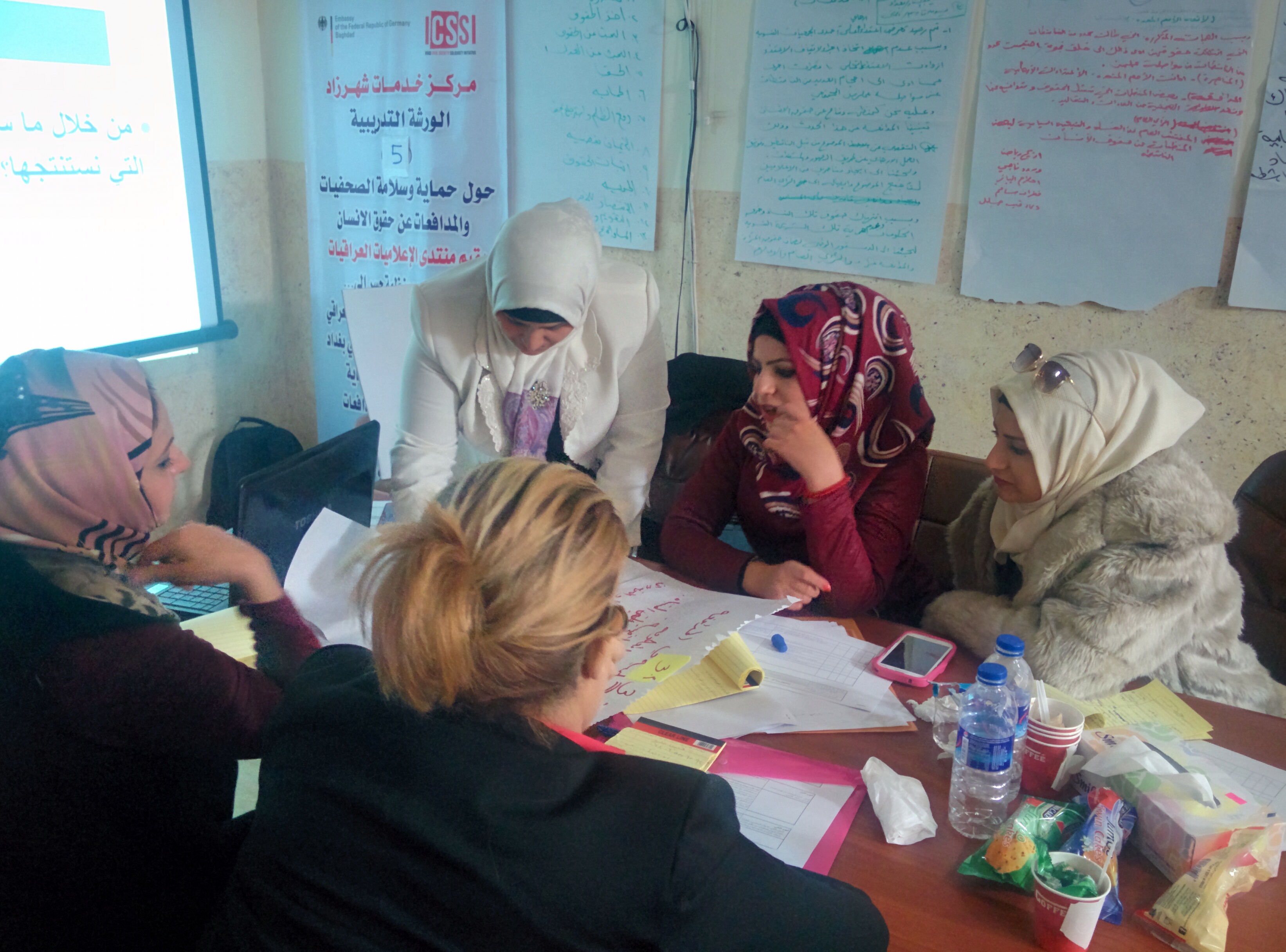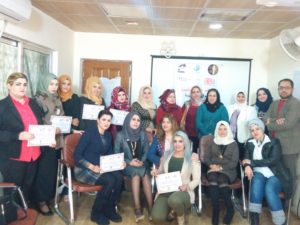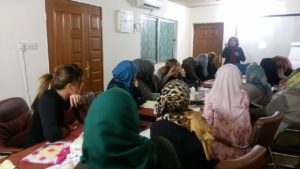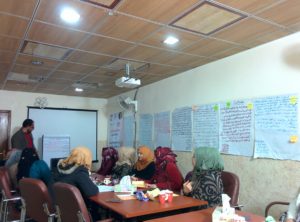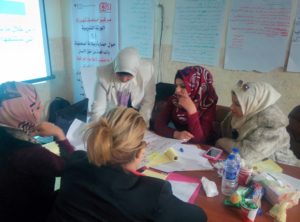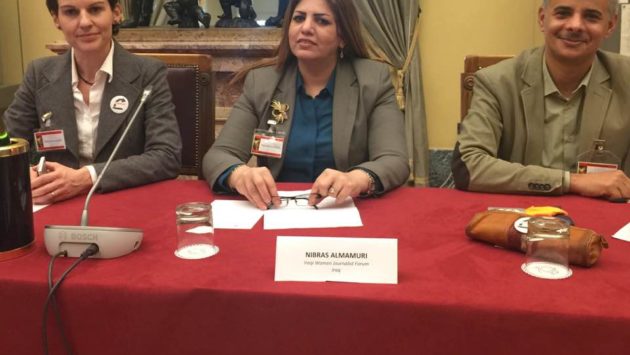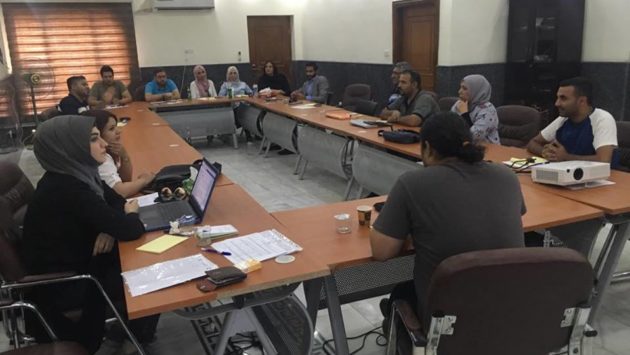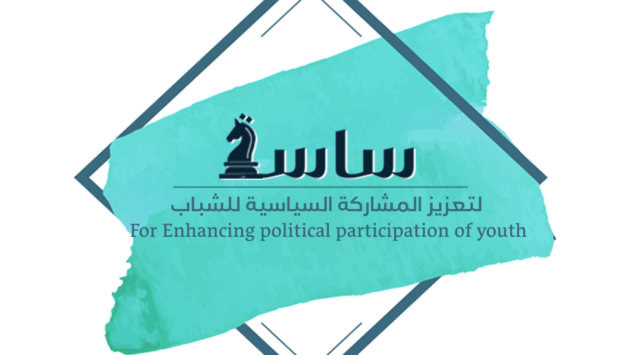Women Activists Meet in Baghdad to Discuss Daily Experience in Their Work as WHRDs
Aysar Shihab- Baghdad
15 women activists and human rights defenders from different governorates of Iraq (Basra, Arbil, Dhi Qar, Salahuddin, Maysan, Muthanna, Dohuk and Kirkuk) gathered in Baghdad to participate in the fifth workshop of the Shahrazad project, which works to protect journalists and human rights defenders. The workshop was held at the Shahrazad Centre and focussed on improving personal and internet protection for huamn rights defenders.The Scheherazade Services Center, dedicated to serving the needs of human rights defenders, provides activists the opportunity to learn about the importance of their work. They come to see how their efforts in supporting human rights itself becomes a gateway for improving their protection. Women defenders also learn how to confront the various risks they face as activists.
The workshop, which lasted three days, opened with a lecture from journalist Lamia al-Amiri on working in the media, and, more specifically, on how to write an engaging press release that simultaneously pulls the reader in and accurately covers the news. She also explained the various methods used to present different types of news.
Next, Dhiyaa Alsarrai (Communication and Information Program Specialist – UNESCO, Iraq) explored the many facets of human rights defending, engaging the participants to establish a clear definition of a ‘human rights defender.’ He then explained the most important differences between a defender, an activist and an advocate by using concrete examples and stories from working in the field, emphasizing the need always to defend human rights within the existing legal framework. This training made it clear that many women need such workshops to enhance their understanding about the importance of advocacy and activity in the area of human rights.
Identifying different violations against human rights defenders and exploring how they might be addressed by drawing on local and international laws and norms greatly interested the participants. They were encouraged to give concrete examples from their own experience in order to focus the discussion and make it relevant and useful in the reality of their own work environments.
Dhiyaa Alsarrai affirmed the importance of working within those agreements and guarantees already recognized by those currently working in the field of human rights, whether a local NGO, or an international body. Knowledge of existing laws, treaties and agreements supports and legitimizes the work of human rights defenders, thus a clear understanding of the legal structure already in place is essential to effective work.
The first day ended with a practical exercise in which participants chose a specific subject and created an advocacy campaign, applying the issues addressed during the days different lectures, drawing on both local and international laws and agreements to determine the most effective way to promote each campaign.
The second day of the workshop was dedicated to explaining the means of digital and internet protection, through a training given by Mr. Ahmed Alnahdh, a specialist in information technology and communications. He discussed social media and its crucial role in supporting advocacy campaigns, if used correctly. He also explained how social media could be a double-edged sword — extremely damaging if used in the wrong way. After this, he went over a variety of different social media websites and applications, explaining how each might be used to support the work of a human rights defender. He looked at methods used to protect human rights defenders who use these social media websites and applications, and stressed the importance of avoiding dubious websites that share fake news. He highlighted the importance of using a strong password to secure one’s privacy, and the importance of keeping confidential files of human rights defender safe from hackers. Also he mentioned other tools that might be used to help human rights defenders in making use of blogs and electronic petitions.
On the third day, Dhiyaa Alsarrai explained necessary steps human rights defenders should take before creating an advocacy campaign about any given subject, the first step being to investigate the issue rigorously, being sure to collect all the related information. If campaign is about legal issues, the defender must be certain that the campaign works within the existing legal framework, or it is liable to undermine its own goal. A successful campaign must be built on a solid legal foundation with a clear understanding of the context in which it will operate. The research done before starting a campaign must yield information that is considered trustworthy by those who might be interested in supporting the campaign. Furthermore, laying this kind of groundwork ultimately helps to prevent the campaign from drawing human rights defenders into danger. Alsarrai also mentioned the importance of choosing the right way to gather supporters, and the need to make sure to involve neutral media outlets in the campaign. He stressed the need to develop a general plan for any campaign which can explain its means and ends clearly to potential supporters and advocates. Such a plan should be is based on all the points mentioned in the workshop and should provide a picture of the campaign’s aims and resources. At the end of the day, Dhiyaa Alsarrai gave participants a practical exercise to help make the issues covered during the workshop clear and accessible.
This workshop was supported by the Shahrazad Services Center of the Shahrazad Project for the Protection of Human Rights Defenders. It was implemented by the Iraqi Journalists Forum in Baghdad, which dedicates itself to the protection of journalists. The project is implemented in cooperation with the Iraqi Civil Society Solidarity Initiative and the Italian organization Un Ponte Per…, with funding from the Human Rights Program of the Embassy of the Federal Republic of Germany in Iraq, and the Swiss Foundation Fi.

